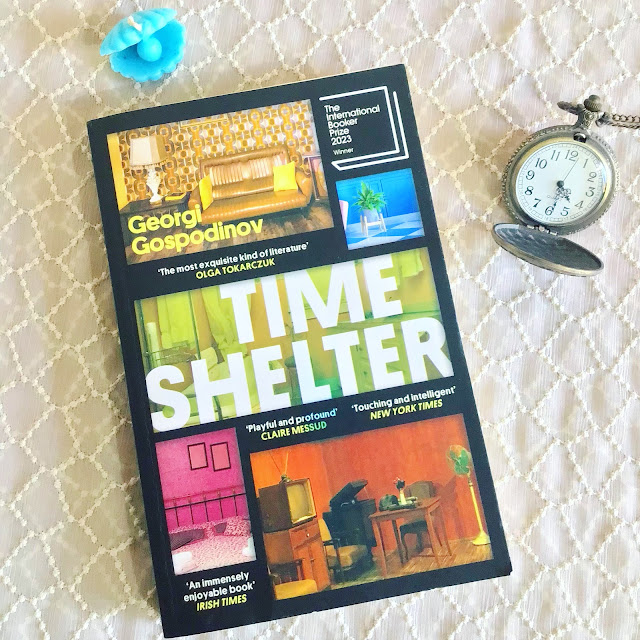TIME SHELTER BY GEORGI GOSPODINOV (TRANSLATED FROM BULGARIAN BY ANGELA RODEL)
BOOK NAME: TIME SHELTER
AUTHOR NAME: GEORGI GOSPODINOV (TRANSLATED FROM BULGARIAN BY ANGELA RODEL)
GENRE: LITERARY FICTION
PUBLISHER: HACHETTE BOOKS
BOOK BUY LINK: https://www.amazon.in/Time-Shelter-Georgi-Gospodinov-ebook/dp/B093GZBVMK
BOOK COVER IMAGE
BOOK REVIEW
Let's end 2023 on a high note with a review of the book that deservingly won this year's International Booker Prize. I have been reading it in bits and pieces over a few weeks as it's highly informative and engaging (also a little too enigmatic) with its detailing and narration. As the self-explanatory title suggests, this book is based on the concept of time, place and memory. I would be lying if I said I completely understood the book. No, I did not. But I tried and may have been partly successful as well. I have tried to summarise the book from what I could grasp and hope it helps.
Dr. Gaustine starts a clinic for patients with Alzheimer's disease where they get to travel to their past. Each room is designed and designated to a particular time period in history, hence the title 'Time Shelter'. Once the clinic becomes famous for its work, people start rushing to it to relive their former lives, even though they are perfectly normal.
A political agenda is formulated, and people must now vote on which period and where they would all want to return. Is it Germany during the Great War, Czechoslovakia during the Velvet Revolution, Spain during the Spanish flu or Rif War, Poland in the 1920s, or Switzerland, which was considered a haven at the risk of soon being overcrowded? Were they the perfect time and place to revisit without causing any temporal chaos in the present? The narrator takes us on a ride through history to reveal the secrets of time.
But why did Dr. Gaustine start the clinic in the first place? Did he do it for the patients or his own sake? As with the narrator, we don't get to learn much about him except that he assists Dr. Gaustine in running the clinic. But there are also moments in the book that made me doubt if the narrator actually existed or was just the doctor's second personality.
This book is so nuanced that a lot of nonfiction gets passed off as fiction as it's entirely based on European history in the late 19th and 20th centuries, and the author has decided to make an elaborate commentary on it without boring the readers - genius-level writing. Fifty years from now, this book might share space with Gabriel Marquez, Murakami and Co, and people might come up with their own theories and interpretations of the text.
I loved reading the book as I am a historical fiction enthusiast, but people who aren't would find it difficult. It needs attention to detail and patience to go through facts and fallacies to fall in love with this book. But once you get to the end, you sure will.
MY REVIEW: 4/5 (-1 considering the sky-high expectations I had from this book, making it fall a little short). I sure did love it and was in awe of the writing, but did I also want a little bit more? What? Where? I have no idea. I can't put it precisely in words. Maybe tone down your expectations before diving in, and you will be able to enjoy it a little better.
This post is a part of Blogchatter’s #TBRchallenge
#penbooksandscalpel




Comments
Post a Comment